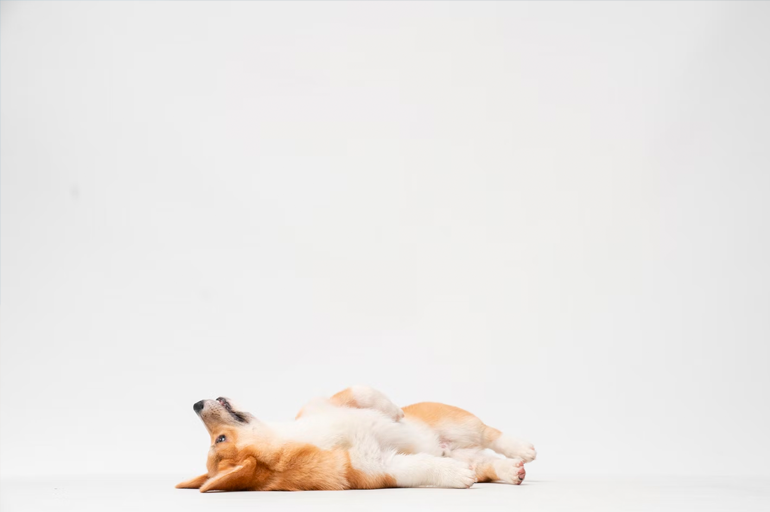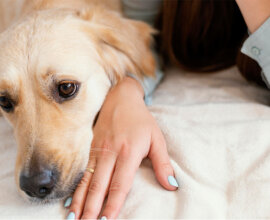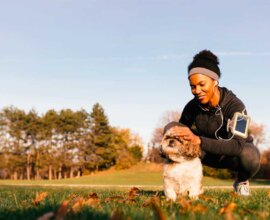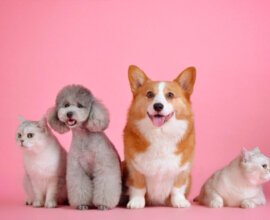Why Your Dog Has Dry Skin and How to Treat It: Dog Dandruff
Dry, itchy skin is never a pleasant experience for dogs. However, the good thing is that with the right interventions, such an issue can be managed right at your home.
If your dog has been struggling with itchy, flaky skin, it’s appropriate you look for ways to keep it comfortable. However, before that, you need to analyze what has been causing your dog to develop dry skin. You can try checking the environment, has there been a change in weather? Diet or it is hormonal changes.
Below are core reasons that trigger dandruff on dogs.
Top Reasons Why Your Dog Has a Dry Skin
Itchy and dry skin can be a red flag of an underlying issue. In most cases, only one issue is likely the root cause. And in rare cases, there may be multiple causes.
1. Skin Infection
Bacterial and fungal infections are the top culprits that might cause your dog to develop dry skin.
When experiencing a fungal infection, your dog develops flaky and scaly skin, especially in the skin folds. There might also be signs of hyperpigmentation.
Bacterial skin infection, also known as pyoderma, is another reason your dog might have dry skin. Your dog will have a scaly skin odor, and you may also notice seeping of blood or pus. Hair loss is also common around the infected area.
If unsure which type of infection it is, consult the vet. The vet may run some skin tests to identify the specific type of pathogen triggering excessive skin dryness.
2. Parasites
Pesky parasites like fleas, lice, mites, and ticks can make your dog develop dry skin. Their bites irritate your dog, which leads to excessive scratching.
The more the bites, the more your dog will scratch, leading to skin rashes, crusting, and hair loss.
If not controlled, these parasites can cause secondary infections.
3. Weather Changes
It may be hard for your dog’s coat to handle when it’s too hot or cold. And one of the effects of these weather changes is dehydrated skin which leads to itchiness.
4. Endocrine Disorder
Conditions like hypothyroidism and Cushing’s syndrome can affect the health of your dog’s coat. Besides having dry skin, your dog may experience hair loss, dandruff, and a low-quality coat.
5. Poor Nutrition and Hydration
Hydration is always vital as it helps keep the dog’s coat healthy. If not well hydrated, the dog coat is less likely to be moisturized, leading to extreme itching.
Besides that, a dog on a poorly balanced diet will have an unhealthy coat compared to one on a balanced diet.
As you know, the right dog food contains lots of amino acids and vitamins that your dog’s hair needs to grow.
A lack of these vital nutrients will make your dog have a low-quality coat that will be dry and full of dandruff.
6. Allergies
The environment your dog is in might trigger allergy issues in your dog. Besides common symptoms like runny nose, eye redness, and sneezing, these allergies might also trigger extreme skin dryness.
Sometimes, a dose of antihistamines can reverse all these allergy symptoms. And in severe cases, immunotherapy might be the only remedy.
7. Use Of the Wrong Shampoo
Your dog has dry skin because you have been using the wrong shampoo. That’s a common issue you might see if you have been using human shampoo on your dog.
When it comes to dog grooming, you must be keen and ensure you have used the right shampoo with the correct ph.
Using any shampoo may lead to an imbalance of the pH, which can cause extreme skin itchiness.
While still on dog grooming, ensure you don’t overdo it, even though you have the right shampoo for the job.
Overdoing it might strip off the moisturizing oil the dog needs to have moisturized skin.
Signs Of a Dry Skin
Below are the telltale signs that help you know that your dog has dry skin.
- Extreme itchiness
- Extreme dog hair loss
- Skin odors
- Redness
- Flakiness
- Hotspots
How To Tackle Dry Skin On Your Dog?
If your dog has been diagnosed with dry skin, numerous measures can be applied to ease the discomfort.
At this point, it’s good you have your vet’s views before starting on anything.
Use Of Medication
The vet might prescribe certain medications to clear off parasites or underlying conditions causing your dog to produce lots of dander.
A Change in Diet Is a Deal
Dietary changes can have a significant impact on your dog’s coat health. Your dog must be on a complete and balanced diet following all AAFCO guidelines.
That way, your dog will get the proper nutrients as per its age, which you will note by the health of its coat.
Frequent Grooming
Grooming is another aspect you should not skip. By grooming, you will eliminate debris or oils that might build up on your dog’s coat, causing it to dry.
Grooming will help spread moisturizing oil on your dog. It is also ideal as your dog will be free of mats and tangles that might promote bacterial and fungal growth underneath the coat.
If on a tight schedule, you can hire a mobile dog grooming service to come and groom your dog right at your home. That will come a long way in saving time and ensuring your dog’s coat is in tip-top condition.
How To Prevent Your Dog from Getting a Dry Skin
- Always ensure your dog is hydrated daily.
- Your dog should be on complete and balanced nutrition right from puppyhood.
- Avoid bathing your dog with human shampoo- such a shampoo can distort your dog’s pH level on the coat.
- In between baths, use a moisturizing spray.
- Ensure your pet is on a parasite control measure. The vet can help you choose the best action to ensure your pet is fully protected all year round.
- Don’t overdo bathing. Unless your dog has a skin disease, don’t bathe him regularly. These regular baths might lead to eroding of the standard moisturizing oils.
- A regular check-up with a vet will be better. As a responsible dog owner, ensure you make visiting a vet a routine. During these routine visits, the vet might help pick out any underlying issues that might trigger dandruff on your dog.
Final Thoughts
Many reasons might make your dog have dry skin. It could be the environment, poor diet, or even parasites. If confusing, it’s appropriate for you to discuss it with a trained vet. The trained vet has all the information needed to unearth the root cause and develop ways to fight dandruff on your dog’s coat.
FAQ’s
Q: What is dog dandruff?
A: Dog dandruff refers to the flaky, dry skin that can occur on a dog’s coat. It is often accompanied by itching and irritation.
Q: Why does my dog have dry skin?
A: There are several possible causes of dry skin in dogs, including allergies, nutritional deficiencies, parasites, environmental factors, or underlying health conditions. It’s best to consult with a veterinarian to determine the specific cause for your dog.
Q: How can I tell if my dog has dandruff?
A: You may notice white flakes on your dog’s fur or bedding, along with itching or excessive scratching. The skin may appear dry and irritated. If you’re unsure, it’s always a good idea to have your dog examined by a veterinarian.
Q: Can dog dandruff be treated at home?
A: In some cases, mild cases of dog dandruff can be managed at home. Regular grooming, such as brushing your dog’s coat and bathing them with a moisturizing shampoo, can help alleviate dryness. However, it’s important to consult with a veterinarian to rule out any underlying health issues and to determine the best course of treatment.
Q: Should I change my dog’s diet to help with dry skin?
A: A balanced and nutritious diet is essential for a dog’s overall health, including the condition of their skin and coat. Your veterinarian may recommend dietary changes or supplements to address any nutritional deficiencies that could be contributing to your dog’s dry skin.
Q: Can allergies cause dog dandruff?
A: Yes, allergies are a common cause of dry skin and dandruff in dogs. Allergies can be triggered by various factors, such as certain foods, environmental allergens (like pollen or dust mites), or flea bites. Identifying and managing the allergen is crucial in addressing the dandruff issue.
Q: How can I prevent dog dandruff?
A: Maintaining a healthy skincare routine for your dog is key to preventing dandruff. Regular grooming, including brushing to remove dead skin cells, moisturizing baths, and using appropriate skincare products, can help keep your dog’s skin hydrated and minimize dandruff. Additionally, addressing any underlying health issues or allergies can also aid in prevention.
Q: When should I seek veterinary care for my dog’s dandruff?
A: If your dog’s dandruff persists or worsens despite home care measures, or if your dog displays other concerning symptoms like hair loss, redness, swelling, or discomfort, it’s crucial to consult with a veterinarian. They can evaluate your dog’s condition and recommend appropriate treatment options.
Q: Are there any home remedies for dog dandruff?
A: While there are some home remedies that may provide temporary relief for dog dandruff, it’s important to remember that they may not address the underlying cause. Home remedies like adding omega-3 fatty acids to your dog’s diet, using coconut oil as a topical moisturizer, or using oatmeal-based shampoos can offer some relief, but professional guidance from a veterinarian is still recommended.
Q: Can dog dandruff be a sign of a more serious health problem?
A: In some cases, persistent or severe dog dandruff can be a symptom of an underlying health condition, such as hormonal imbalances, autoimmune disorders, or skin infections. It’s important to have your dog evaluated by a veterinarian to rule out any serious health issues and determine the appropriate treatment plan.






